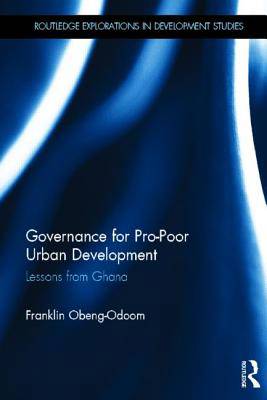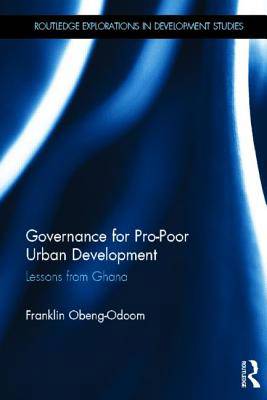
- Retrait gratuit dans votre magasin Club
- 7.000.000 titres dans notre catalogue
- Payer en toute sécurité
- Toujours un magasin près de chez vous
- Retrait gratuit dans votre magasin Club
- 7.000.0000 titres dans notre catalogue
- Payer en toute sécurité
- Toujours un magasin près de chez vous
Description
The world development institutions commonly present 'urban governance' as an antidote to the so-called 'urbanisation of poverty' and 'parasitic urbanism' in Africa.
Governance for Pro-Poor Urban Development is a comprehensive and systematic analysis of the meaning, nature, and effects of 'urban governance' in theory and in practice, with a focus on Ghana, a country widely regarded as an island of good governance in the sub region. The book illustrates how diverse groups experience urban governance differently and contextualizes how this experience has worsened social differentiation in cities.
This book will be of great interest to students, teachers, and researchers in development studies, and highly relevant to anyone with an interest in urban studies, geography, political economy, sociology, and African studies.
Spécifications
Parties prenantes
- Auteur(s) :
- Editeur:
Contenu
- Nombre de pages :
- 272
- Langue:
- Anglais
- Collection :
- Tome:
- n° 6
Caractéristiques
- EAN:
- 9780415833769
- Date de parution :
- 17-07-13
- Format:
- Livre relié
- Format numérique:
- Genaaid
- Dimensions :
- 150 mm x 236 mm
- Poids :
- 517 g

Les avis
Nous publions uniquement les avis qui respectent les conditions requises. Consultez nos conditions pour les avis.






